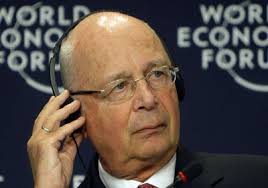
In the run up to the 45th meeting of the World Economic Forum in Davos last week, Klaus Schwab, the founder of the Forum and its Executive Chairman called 2015 a critical year and said that the world was at a cross roads and that the choice was between disintegration, hate and fundamentalism or one of solidarity and cooperation. Professor Schwab also made explicit reference to Paris and the brutal attacks on Charlie Hebdo and said that Paris illustrated both possible choices by the attack itself and the pluralist demonstration that followed it.
10 topics
The Forum this year is also organized around the theme of the new global context and within that idea focusses on 10 topics and it is worth reproducing the topics as it gives some insight into what the heads of many of the worlds largest corporations will be hearing about when they spend three days in Switzerland next week. The full program can be found here.
- The future of the internet
- Climate Change
- Infrastructure & Development Finance
- Economic Growth & Social Inclusion
- The future of the global financial system
- Environment and Resource Scarcity
- Health
- Employment, Skills, and Human Capital
- International trade and Investment
- Geopolitics
The Middle East
A region that will be of particular focus at Davos is what is normally called the Middle East and while the term means different things to different people, the World Economic Forum use uses it freely.
There will be sessions on the new energy context, the geo-economics of energy, on the question of whether religion is a pretext for conflict, and many others on the economic and security issues concerning the region.
Speakers from the region include the CEO of Saudi Aramco, The Secretary General of Opec, The Prime Minister of Turkey, a former President of Israel, the current president of Egypt, the president of Iraqi Kurdistan, a Saudi Prince, the King of Jordan, Iraq’s Prime Minister and his Vice President, the former Secretary General of the League of Arab States, and a number of Journalists and Academics who focus on the region.
Just the Beginning?
A German journalist, Jürgen Todenhöfer, has recently come back form a 10 day trip to what is called the Islamic State and sees the regime as in firm control of Mosul and the other parts of its territory he visited.

His view is that the Sunni population has nothing to fear from the Islamic State and will go along with it. IS fighters are motivated, confident and hundreds of young people arrive form all over the world on a daily basis to join them.
With very small groups of zealous fighters spread out amongst the general population, there is no clear way that the west can defeat IS and according to Todenhöfer 400 IS fighters defeated 25,000 Iraqi troops in the battle for Mosul.
So far only the Kurdish Peshmerga has managed to put up effective resistance and the real test, in my view, will come when IS begins to move beyond the Sunni triangle in Iraq and target the Southern part of the country and then the oil rich gulf states.
The United States and its coalition partners were able to defeat the Iraqi army in 1990 and again in 2003 when the country was ruled by Saddam Hussein. The Iraqi army was reportedly made up largely of conscripts and led by people with close political ties to the government. Interviews with Iraqi soldiers talked about their commanders fleeing the battlefield and in both conflicts the army surrendered after punishing bombardment or melted away as coalition forces advanced.
Based on their success to date and the power of Jihad as a motivation, it seems that IS will be a much more difficult force to deal with if it manages to reach out to the Sunni majorities across the arab region.
The people who organize the World Economic Forum seem to think the region is something business leaders should look closely at in the coming years and I agree with them.

